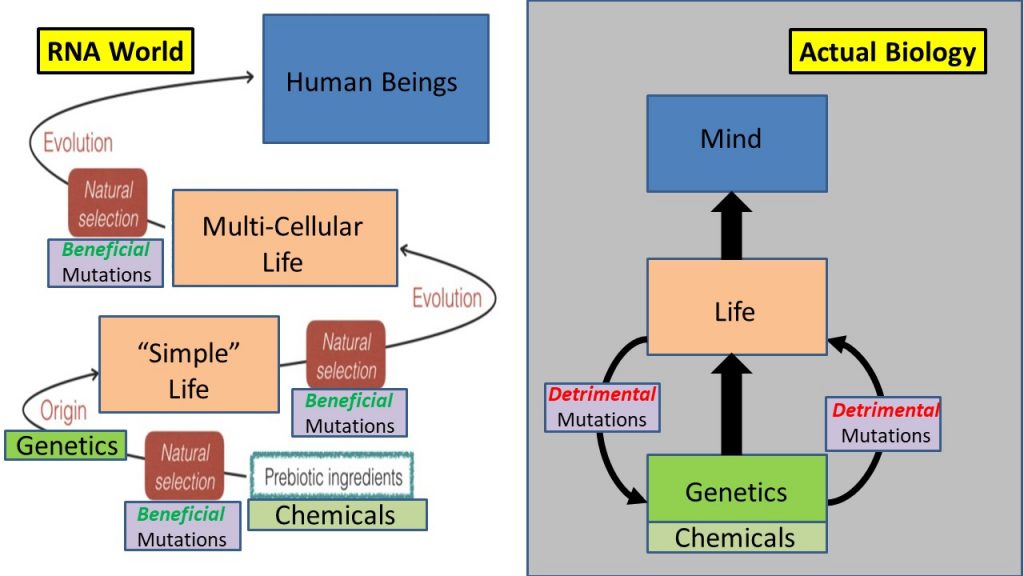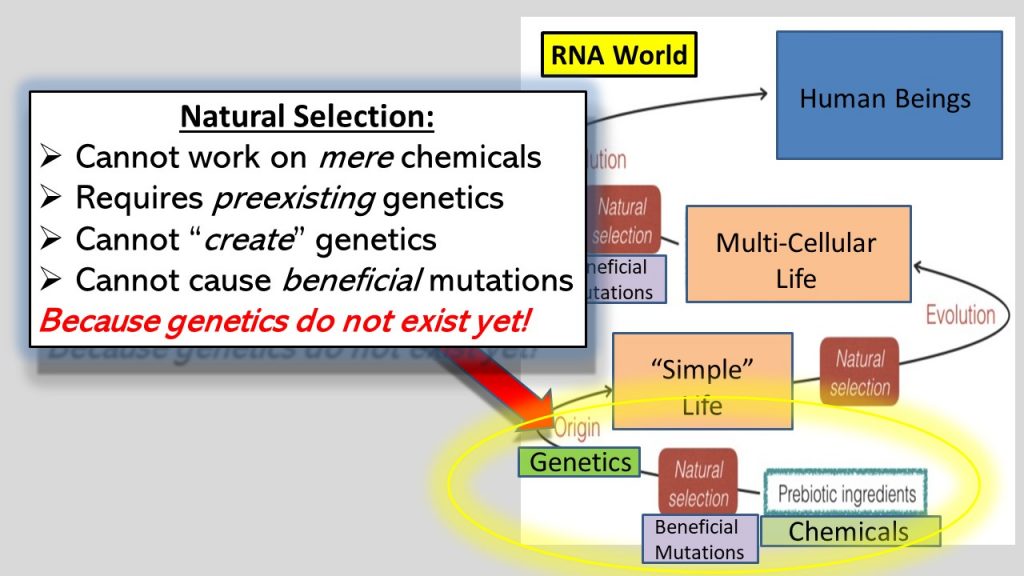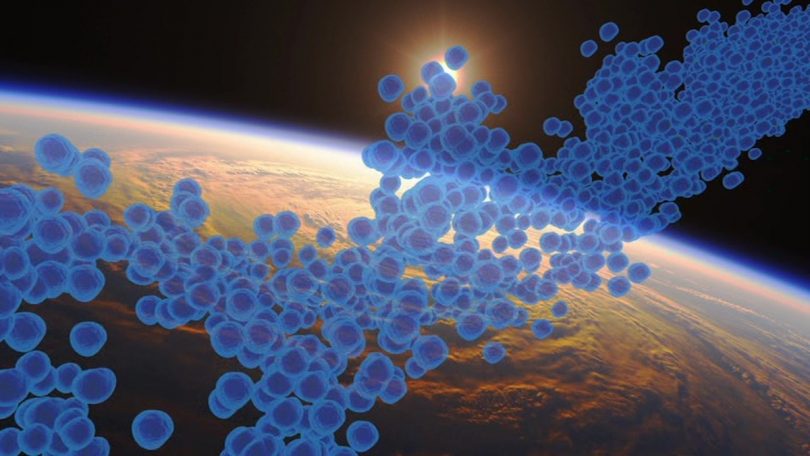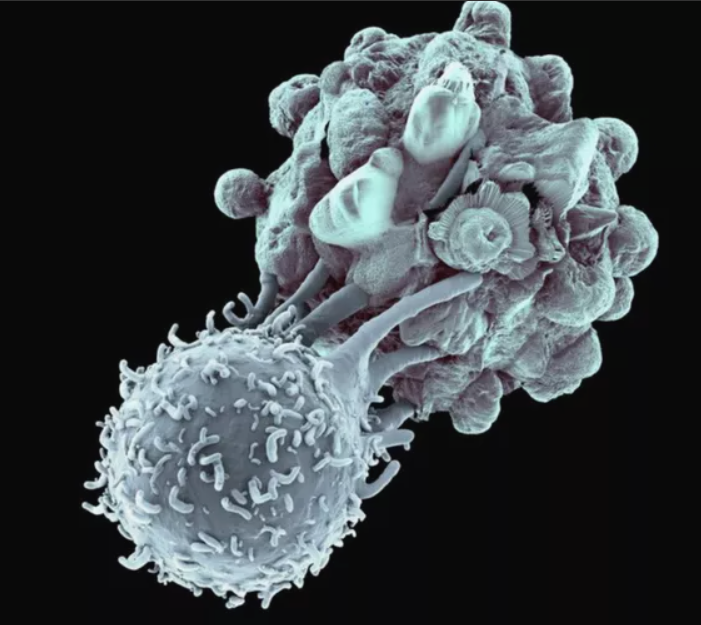Natural selection only affects already living things (and evidence shows and therefore the theory is Dead On Arrival.
Evolutionists are wildly imaginative as to how marvelous spontaneous mutations affect genetics beneficially. They imagine, despite it not being observed in the present, in the distant past evolution caused mutations to build and add new genetic information. Evolution causes multi-cellular organisms to emerge from “simpler” life forms. The process (“evolution”) built a human being from the ancient ancestor of a bacteria-like organism. The magic resides in the mechanism of time itself–lots and lots of time! By contrast, Creationists point to observable scientific data (in the present) which clearly reveals that mutations are 2/3 bad and 1/3 neutral. Essentially no spontaneous mutation is beneficial as it always emerges as a detriment to genetic material.
Clearly, spontaneous mutation are definitively detrimental in present genetic research.

Natural selection is assumed to take edited genetics (due to spontaneous mutations) and gain information and benefit in living organisms. Here, the RNA World Hypothesis takes raw chemicals and gives natural selection a supernatural power to organize and self generate the genetic material itself! Preposterous!

From the article by the US National Library of Medicine titled, “The RNA World Hypothesis: the worst theory of the early evolution of life (except all the others)” identify many reasons to doubt the RNA World Hypothesis, “…problems associated with the RNA World Hypothesis are well known.”
Bernhardt, Harold S., “The RNA world hypothesis: the worst theory of the early evolution of life (except for all the others)” (parenthesizes in original)
Other major problems include the obvious protein paradox: what came first RNA that built the protein or the protein of RNA? RNA World identified that it can catalyze replication but not without supporting components from living cells such as ribosomes, ATP, etc. Also, the RNA molecule is too complex to have arisen from a prebiotic soup and is structurally unstable. Additionally the long sequences required for RNA to catalyze are extremely rare and unlikely to ever emerge without enzymes in a prebiotic environment full of good and bad chemical components. Also, the half-life of many needed amino acids are only an hour or so and therefore they exist for way too short a time for random chance to do any magic. Lastly, RNA World fails because chemicals cannot create complex specified information.
More related blogs: RNA WORLD HYPOTHESIS HAS PROTEIN PARADOX, RNA WORLD HYPOTHESIS IS “CHEMICALLY INCOMPATIBLE”


